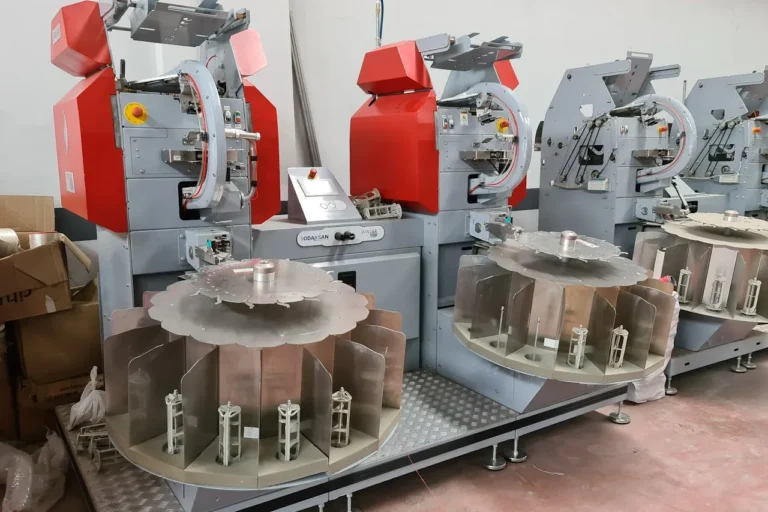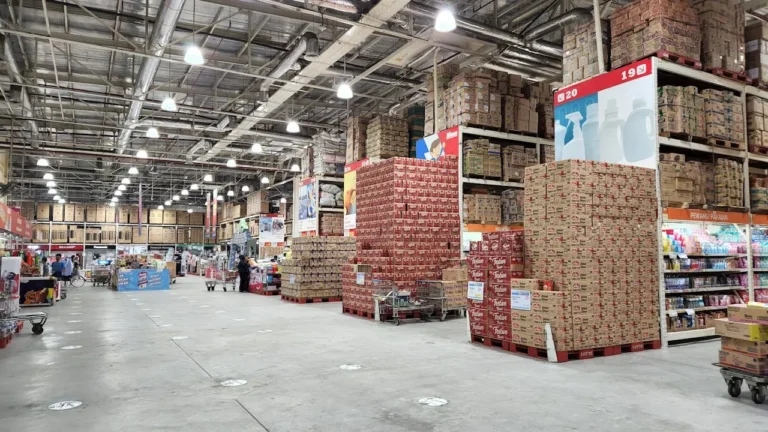
Biologics Contract Manufacturing Market Poised for Strong Growth Through 2035, with Over 305 CMOs Driving Expansion
Global Biologics Contract Manufacturing Market Set for Robust Expansion Through 2035
A new report titled “Biologics Contract Manufacturing Market: Industry Trends and Global Forecasts to 2035” has been released by ResearchAndMarkets.com, providing a comprehensive analysis of one of the fastest-growing segments within the biopharmaceutical industry. According to the study, the global biologics contract manufacturing market is projected to increase from USD 23.8 billion in 2025 to USD 55.0 billion by 2035, reflecting a strong compound annual growth rate (CAGR) of 8.8% during the forecast period.
This growth is being fueled by the increasing complexity and demand for biologics, which include monoclonal antibodies, vaccines, cell and gene therapies, and biosimilars. These products are valued for their high efficacy, safety, and specificity—attributes that have driven a shift within the biopharmaceutical industry from traditional small-molecule drugs toward large, complex biologics. The U.S. Food and Drug Administration (FDA) approved more than 50 biologic products in 2024 alone, signaling a rapidly expanding therapeutic pipeline that continues to create a surge in global manufacturing demand.
Growing Outsourcing Trend in Biologics Production
While biologics offer enormous therapeutic potential, their production is technically complex, capital intensive, and heavily regulated. Manufacturing requires sophisticated infrastructure, specialized bioreactors, rigorous process controls, and skilled expertise. As companies face long development timelines and rising costs, many are turning to Contract Manufacturing Organizations (CMOs) to meet their production needs.
This shift toward outsourcing enables pharmaceutical and biotech firms to access cutting-edge technologies, ensure regulatory compliance, and accelerate time-to-market without the burden of heavy capital investment. CMOs now provide comprehensive end-to-end solutions—ranging from bioprocess development and scale-up to full commercial manufacturing—making them essential partners in the global biologics supply chain.
The report underscores that outsourcing has evolved from being a cost-saving measure to a strategic enabler, helping companies enhance flexibility, manage risk, and focus on their core competencies in drug discovery and commercialization.
Market Overview and Key Insights
According to the report, more than 305 CMOs worldwide are currently involved in biologics production. Of these, over 90% offer finished dosage form (FDF) manufacturing services. Approximately 70% of industry players operate across all scales—preclinical, clinical, and commercial—to accommodate varying client needs.
A key technological trend highlighted in the report is the dominance of mammalian cell-based expression systems, which have emerged as the preferred method for producing complex biologics due to their ability to replicate human protein structures.
The competition among CMOs remains intense, particularly as they compete to support emerging drug classes such as cell and gene therapies and antibody-drug conjugates. Much of this competition is driven by the success of recent blockbuster biologics and the ongoing diversification of therapeutic pipelines.
Geographical Shifts and Strategic Expansion
Over the past decade, the report notes a clear trend toward geographic diversification in biopharmaceutical manufacturing. Increasingly, CMOs are setting up facilities in developing regions—especially across Asia-Pacific, where operational costs are lower and market access is improving.
In the past five years alone, over 695 collaboration deals have been signed by biologics CMOs, primarily for the manufacturing of vaccines, antibodies, and cell therapies. Furthermore, the industry has seen more than 135 mergers and acquisitions, as service providers expand portfolios and capabilities to position themselves as full-service “one-stop shops.”
Investor confidence in this sector remains strong. In the past eight years, over USD 7.5 billion has been invested across 90 funding instances, underscoring the growth potential of biologics manufacturing.
Additionally, large pharmaceutical companies have undertaken more than 215 strategic initiatives—with 80% of these focused on partnerships and facility expansions—to strengthen their global biologics supply capabilities.
Despite current installed capacity being sufficient to meet short-term needs, the study predicts CMOs will continue investing in incremental capacity expansion to accommodate long-term global demand. Notably, large players account for 80% of existing biopharmaceutical contract manufacturing capacity.
Comprehensive Research Coverage
The ResearchAndMarkets report provides an extensive overview of the biologics contract manufacturing ecosystem. It covers:
- Market sizing and opportunity analysis by service type, biologic type, expression system, company size, and region.
- Market landscape analysis, profiling leading CMOs based on factors such as establishment year, scale of operation, service range, and bioreactor technology.
- Regional capability insights that examine the distribution of facilities across North America, Europe, Asia-Pacific, and the Rest of the World.
- Company profiles detailing financials, service portfolios, facilities, and strategic developments of key players.
- Case studies on niche manufacturing areas such as antibody-drug conjugates (ADCs), bispecific antibodies, viral vectors, cell, and gene therapies.
- Make-vs-buy frameworks assisting drug developers in deciding between in-house manufacturing or outsourcing to CMOs.
- Analysis of partnerships, collaborations, and M&A activity highlighting the evolving nature of strategic alliances within the sector.
The report also includes capacity and demand analyses, estimating global biomanufacturing capacity and biologics demand by patient population, dosing frequency, and therapeutic area. Additionally, it offers SWOT analyses, total cost of ownership models, and an exploration of virtual pharmaceutical company models, which are becoming increasingly prevalent in the biologics space.
Leading Companies Profiled
The report profiles several key players shaping the future of biologics manufacturing, including:
- AGC Biologics
- Boehringer Ingelheim
- Catalent
- Charles River Laboratories
- FUJIFILM Diosynth Biotechnologies
- KBI Biopharma
- Kemwell Biopharma
- Lonza
- Miltenyi Biotec
- Minaris Regenerative Medicine
- Samsung Biologics
- Sandoz
- Vetter Pharma
- Wuxi Biologics
- Cell Therapies
These companies collectively represent the global backbone of biologics manufacturing, leveraging innovation, automation, and digital process control to meet the increasing complexity of biologics production.
Market Segmentation
The report divides the market across several parameters:
By Type of Service: API manufacturing and FDF manufacturing.
By Type of Biologic: Antibodies, cell therapies, vaccines, and other biologics.
By Expression System: Mammalian, microbial, and others.
By Scale of Operation: Preclinical/clinical and commercial.
By Company Size: Small, mid-sized, large, and very large enterprises.
By Geography: North America, Europe, Asia-Pacific, Middle East & North Africa, and Latin America.
Outlook: A Decade of Expansion Ahead
The biologics contract manufacturing market is poised for a decade of sustained growth driven by increasing biologics approvals, pipeline diversification, and continued outsourcing by pharmaceutical innovators. CMOs are investing heavily in next-generation technologies such as single-use bioreactors, continuous bioprocessing, and digitalized manufacturing systems to enhance efficiency and scalability.
With biologics expected to dominate the future of global therapeutics, CMOs are becoming vital strategic partners—helping to accelerate product development timelines, maintain quality, and ensure affordability. As the report concludes, the biologics contract manufacturing sector is projected to expand at an annualized growth rate of 8.8% through 2035, underpinned by rising demand, advancing technologies, and increasing global collaborations.




